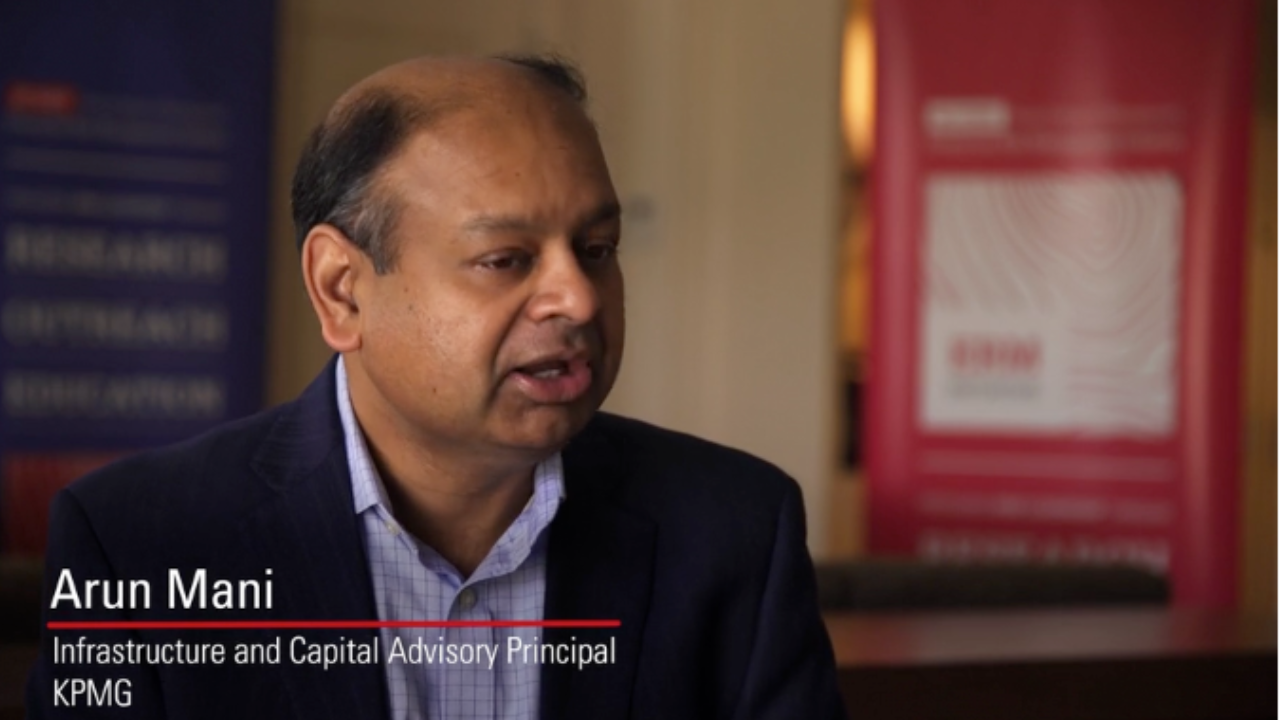Interviewee: Arun Mani, Partner in KPMG’s Infrastructure and Capital Advisory Practice
In this video, Don Pagach, Professor and Director of Research in the ERM Initiative interviews Arun Mani, Partner in KPMG’s Infrastructure and Capital Advisory Practice. Arun shares his insights about developments related to the generation and distribution of energy (both power and gas) and how that is undergoing significant transition over the near term.
What is “Energy Transition?”
Much of the infrastructure (transmission lines, distribution lines) that supports energy generation and distribution has been built over the last century. Arun highlights how that underlying infrastructure is undergoing significant change in the next couple of decades. While energy transition directly effects energy providers, all organizations need to be aware of what is unfolding given that transition may affect their organization’s risk profile, particularly those entities who have significant energy needs in their business.
Risks Linked to Energy Transition
The cost of energy is significant to most entities and new technologies and policy changes are triggering all types of uncertainties surrounding energy delivery. Leaders need to consider how changes in energy generation and delivery, including regulations surrounding that, may impact their organization’s business model.
Arun provides a high-level overview of energy transition efforts and he outlines a number of issues that executives of all types of organizations and industries need to consider including the following:
- Why energy transition is something that needs to be on every organization’s risk radar.
- Risk areas that might be triggered by energy transition.
- Suggestions for how organizations are considering this risk issue.
- Types:



